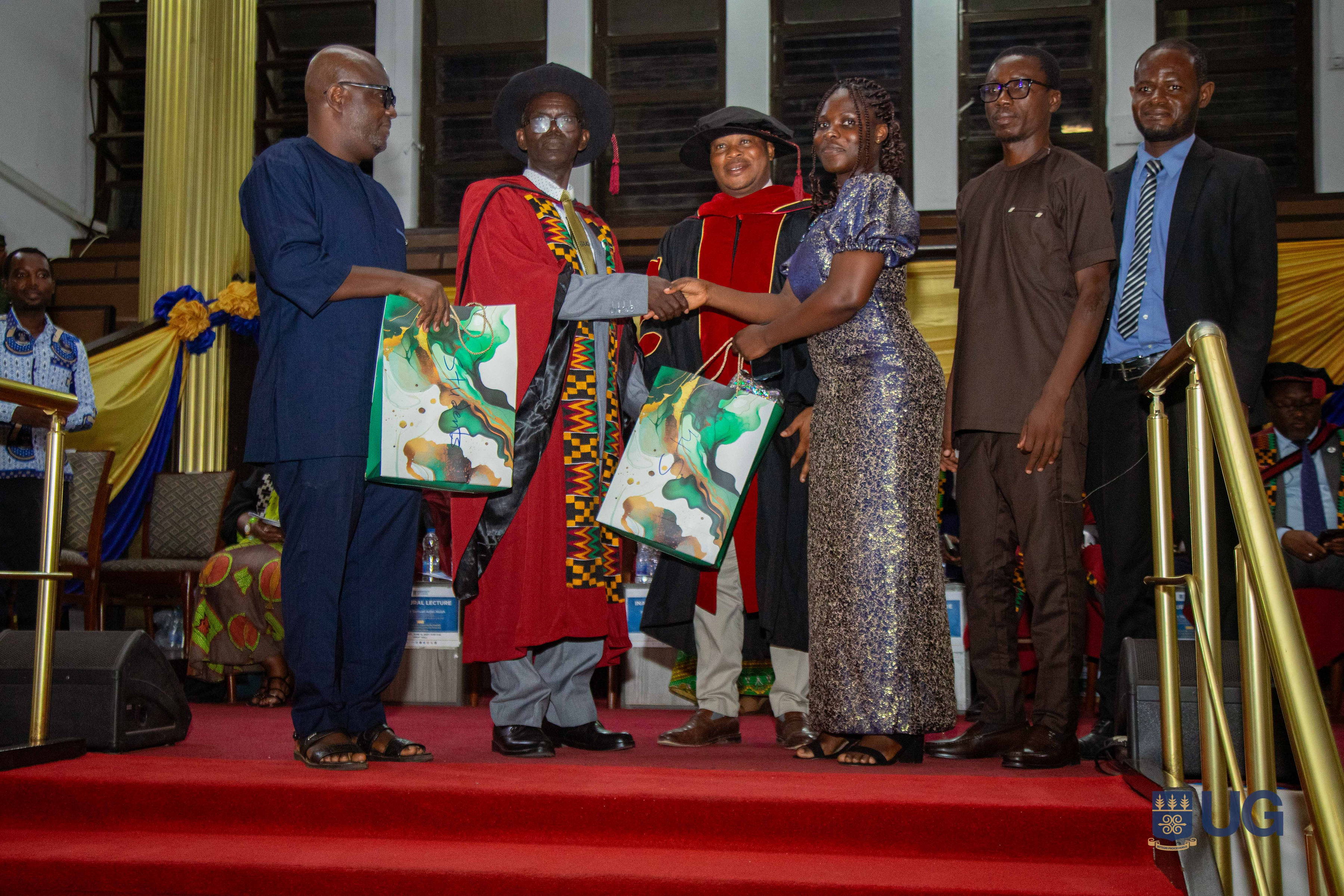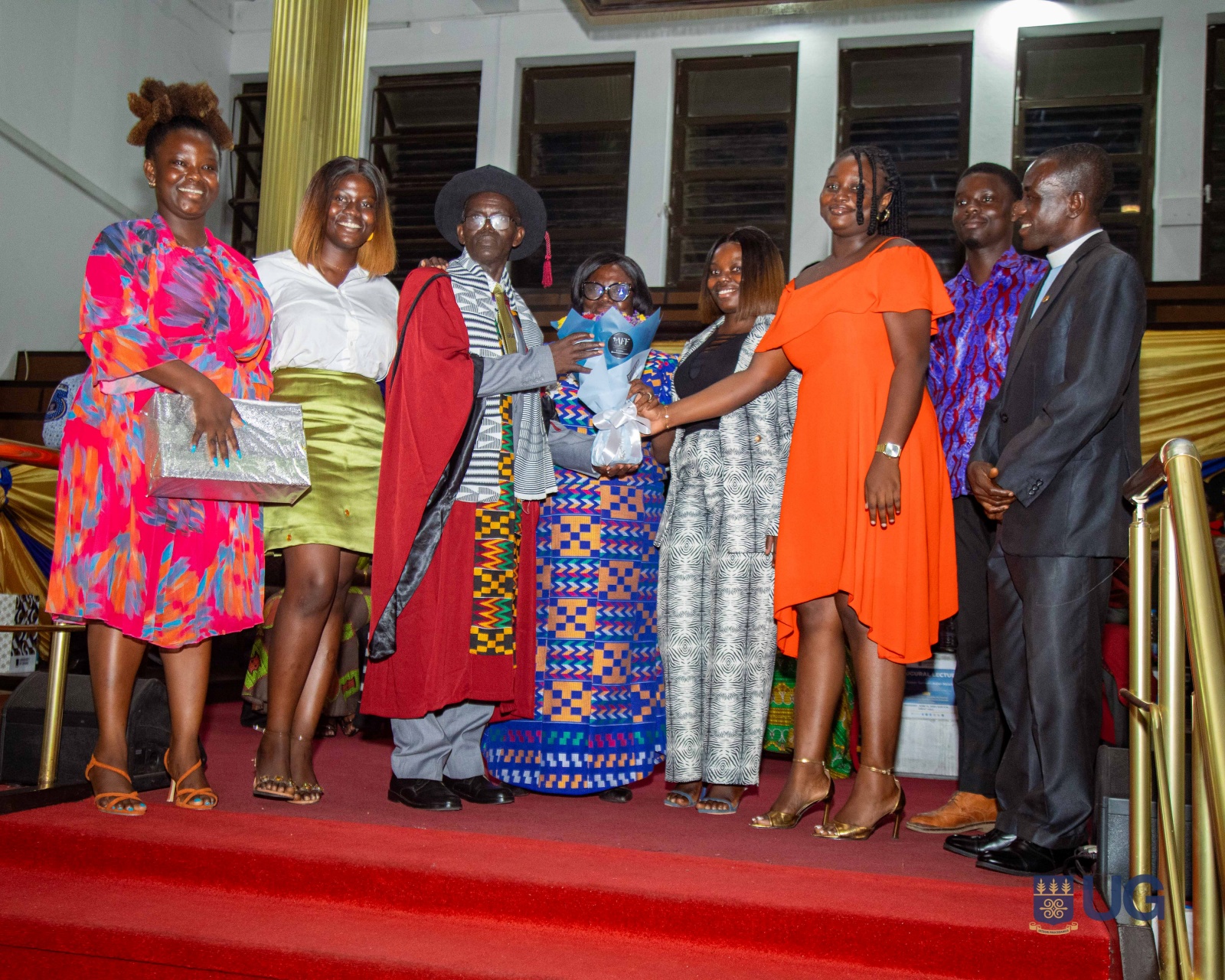Ghana Needs Investment in Soybean to Tackle Poverty and Drive National Development – Prof. Adjei-Nsiah

Ghana must prioritise investment in soybean production to combat poverty and accelerate rural development, particularly in the northern regions, a leading agricultural scientist at the University of Ghana has said.
Delivering his inaugural lecture on Thursday, 12 June 2025, Prof. Samuel Adjei-Nsiah, former Head of the Forest and Horticultural Crops Research Centre (FOHCREC), called for a national agenda to harness the untapped potential of soybean to transform livelihoods, boost nutrition and strengthen local industries.
“Soybean is more than a crop, it is a solution to poverty, hunger, job creation and land degradation,” Prof. Adjei-Nsiah told an audience of academics, clergy, government officials, students and development partners.
Titled “Bean There, Done That: Unleashing the Potential of Soybean in Contributing to Poverty Reduction in Northern Ghana,” the lecture highlighted more than a decade of Prof. Adjei-Nsiah’s research and development work, from the lab to the farmer’s field.
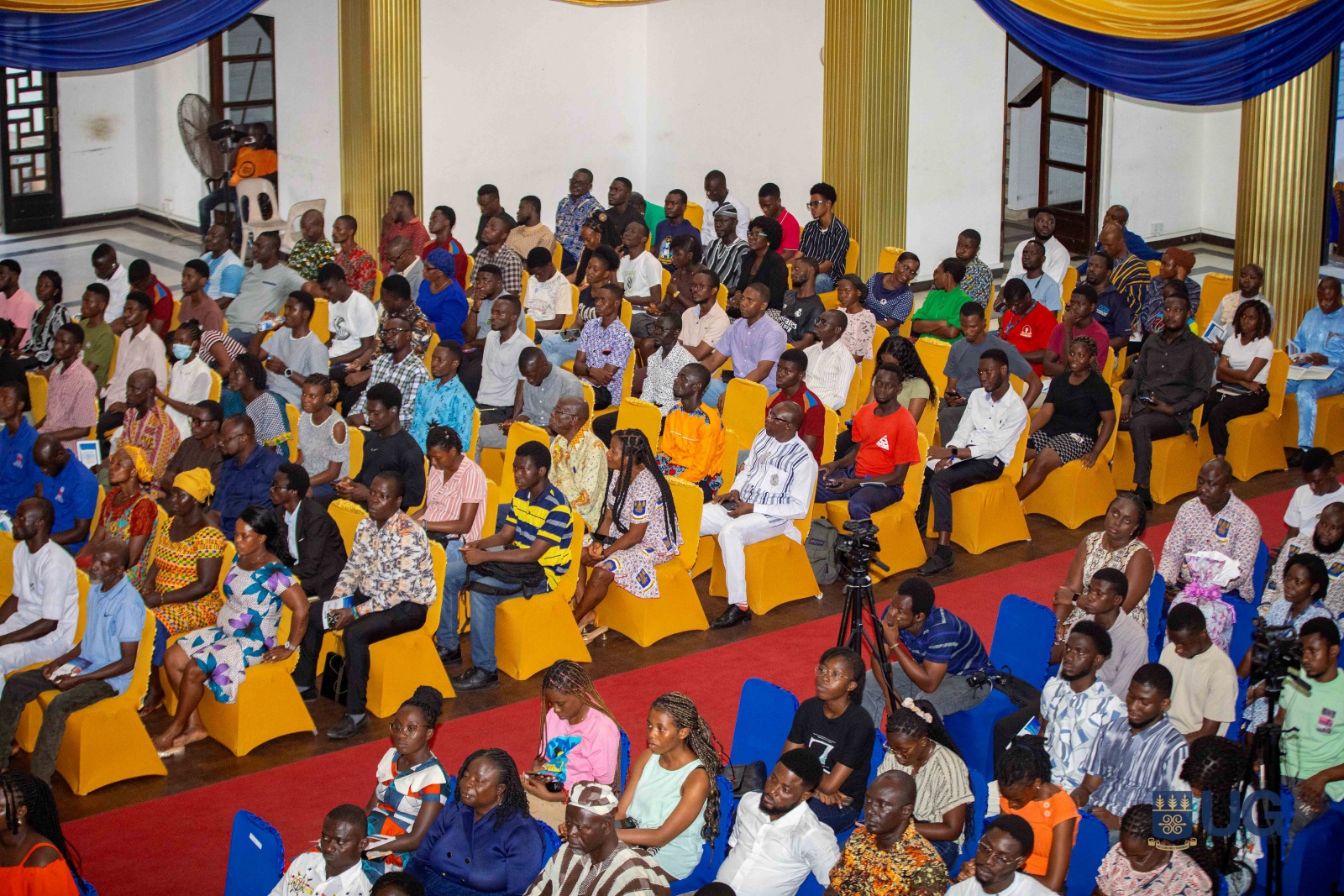
Drawing on his experience in leading soybean projects across the north, he argued that the crop holds the key to reversing cycles of low productivity and limited incomes among smallholder farmers.
According to him, soybean offers multiple benefits, including the ability to fix nitrogen and improve soil fertility, serve as an affordable source of protein, particularly for women and children and support industries such as poultry, aquaculture and agro-processing. “Despite rising national demand, Ghana still imports large quantities of soybean products. With the right support systems, we can reverse this trend,” the former Head of FOHCREC revealed.
Data from Prof. Adjei-Nsiah’s lecture showed Ghana’s current production of about 343,000 metric tonnes of soybean grains, falls far short of the estimated national demand of nearly 700,000 tonnes, with significant importation gaps for soymeal used in livestock and aquaculture industries. He further pointed out regions such as the Northern, Northeast and Upper West hold vast potential for scaling production if investments in improved seeds, mechanisation, value chain development and farmer training are sustained.
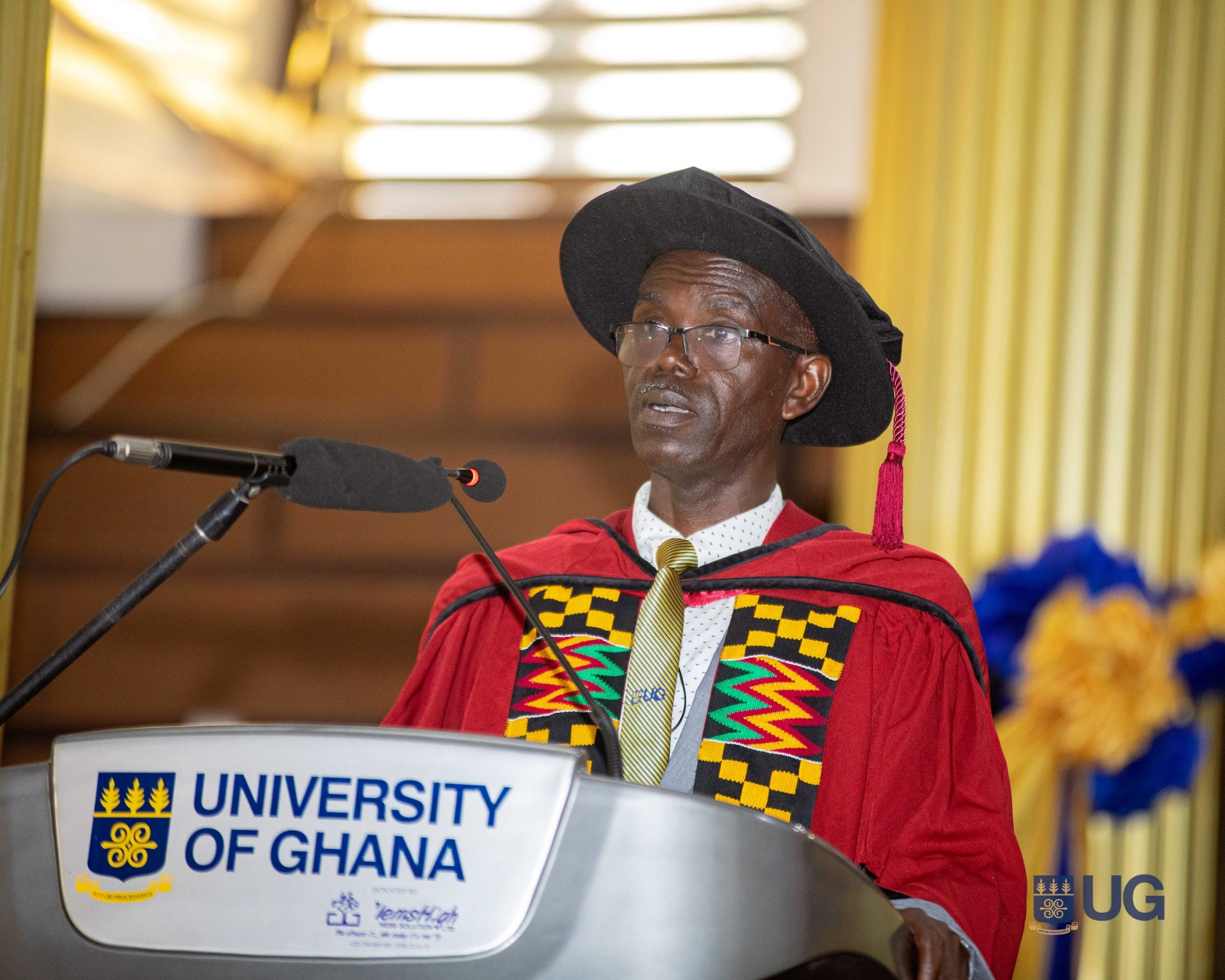
Commenting on the impact of his work, Prof. Adjei-Nsiah noted that over 130,000 soybean farmers now benefit from digital advisory services, site-specific fertilizer recommendations and improved seed varieties tailored to their ecological zones.
He detailed that his research has also supported youth- and women-led agribusiness models, productive intercropping systems and mechanisation services across 16 districts. “We have seen how a small seed can drive big change, but innovations and building strong partnerships is key,” he said.
The Professor of Agronomy acknowledged the critical support of international partners, including the Gates Foundation, the Norwegian Agency for Development Cooperation (NORAD), Wageningen University and Research and the International Institute of Tropical Agriculture (IITA) in research that has unearthed several interventions for farmers.
He also thanked Ghana’s Ministry of Food and Agriculture, YARA Ghana, the Soybean Value Chain Association and thousands of farmers, aggregators, processors and extension officers for their contributions over the years.
Prof. Adjei-Nsiah paid tribute to his mentors and colleagues, including the late Prof. O. Sakyi-Dawson, Dr. Richard Asare, Prof. Ken Giller and Prof. Kwame Afreh-Nuamah, as well as his family.
Prof. Adjei-Nsiah concluded his lecture by calling for policy alignment, investment in research and agribusiness development and a coordinated national strategy for soybean promotion. “Together, we can make soybean a cornerstone of sustainable agriculture in Ghana,” he intimated.
Vice-Chancellor Prof. Nana Aba Appiah Amfo, who chaired the occasion, commended Prof. Adjei-Nsiah for his decade-long commitment to impactful research and community transformation. She said his work exemplifies the University’s vision of achieving global impact through research, innovation and societal engagement.
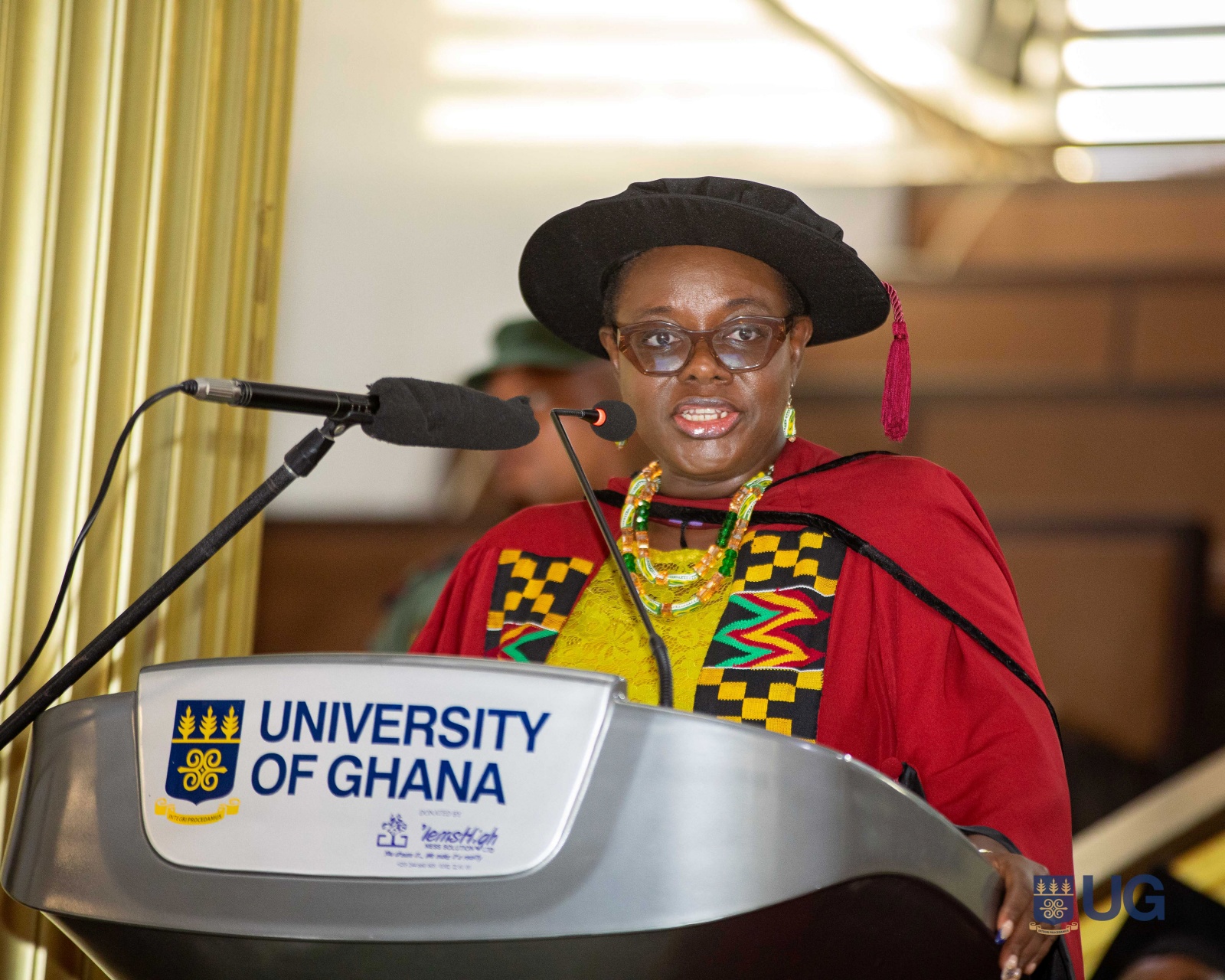
“Prof. Adjei-Nsiah embodies the very essence of our vision,” she said. “His efforts to support on-the-ground training and education for farmers, the capacity building of extension officers and his ability to translate complex research findings into knowledge that is accessible to local communities reflect the transformative power of engaged scholarship.”
She added, “Through Prof. Adjei-Nsiah’s decade-long research journey, we see how science, when applied with purpose and passion, can transform lives, empower communities and drive sustainable development.”
Prior to the Vice-Chancellor’s remarks, the Registrar of the University, Mrs. Emelia Agyei-Mensah, underscored the importance of inaugural lectures in the academic life of the institution, describing the event as a significant highlight on the University’s calendar, as it offers a platform to celebrate faculty members who have attained the rank of full professor.
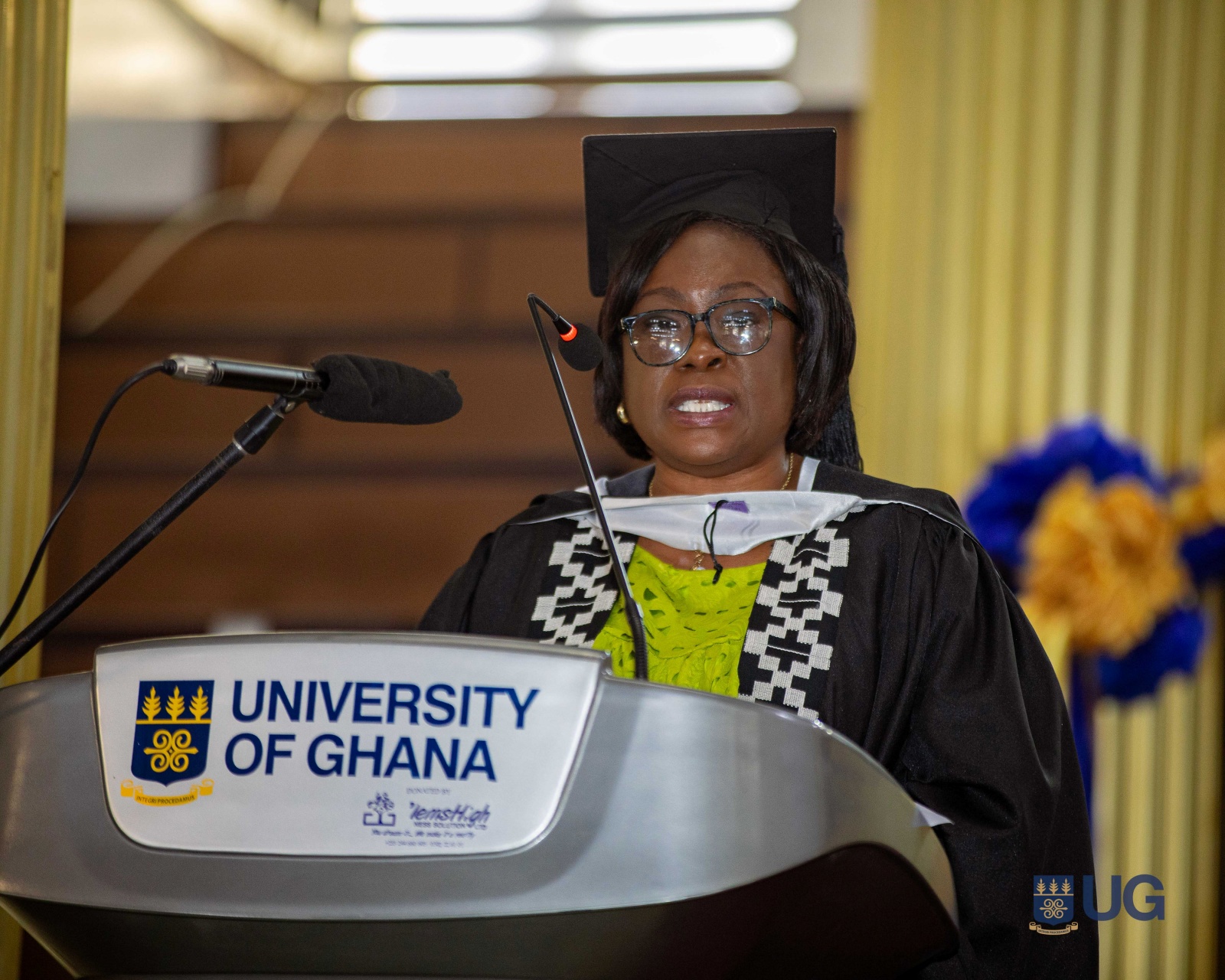
Presentations were made by the College of Basic and Applied Sciences, School of Agriculture, Forest and Horticultural Crops Research Centre, mentees and past students of Prof. Adjei-Nsiah, staff of the SSPiNG Project from the International Institute of Tropical Agriculture and his family.
